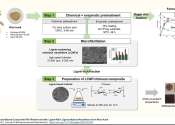Rice husk can be used as a promising sustainable packaging material
Rice husk, the hard-protective layer that envelopes the inner grain of rice, constitutes approximately 20%–25% of the entire rice structure and produces a considerable amount of by-products. In a study published in the ...









